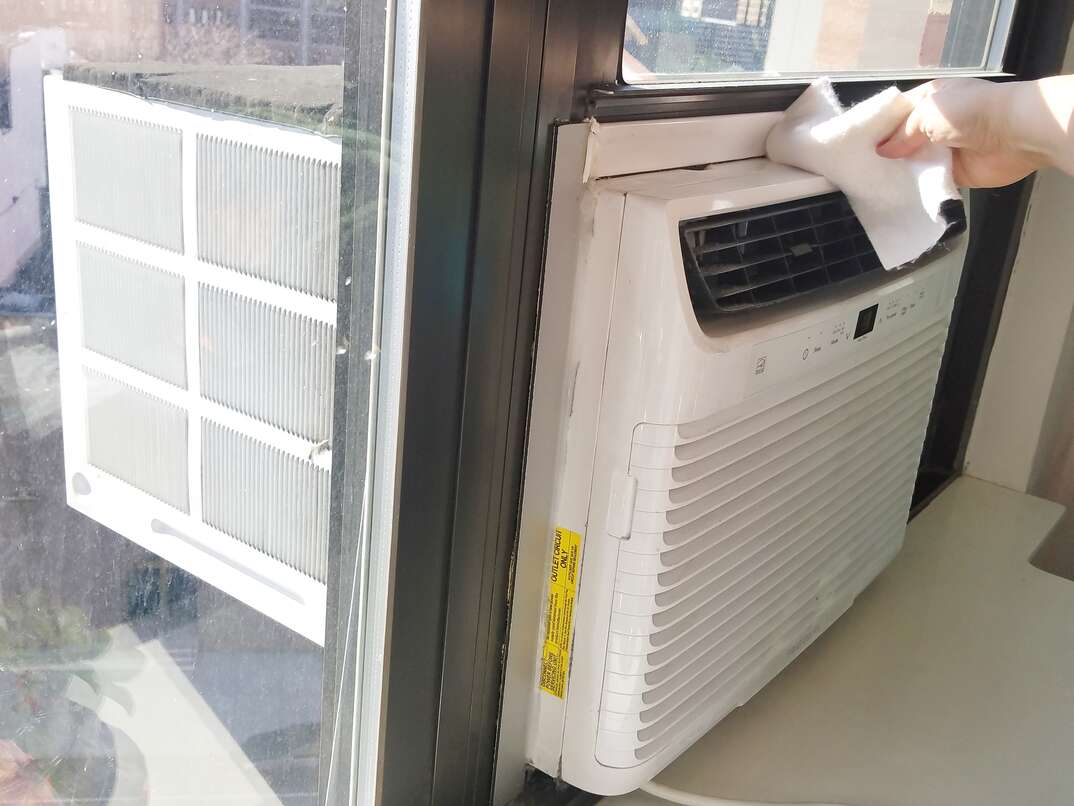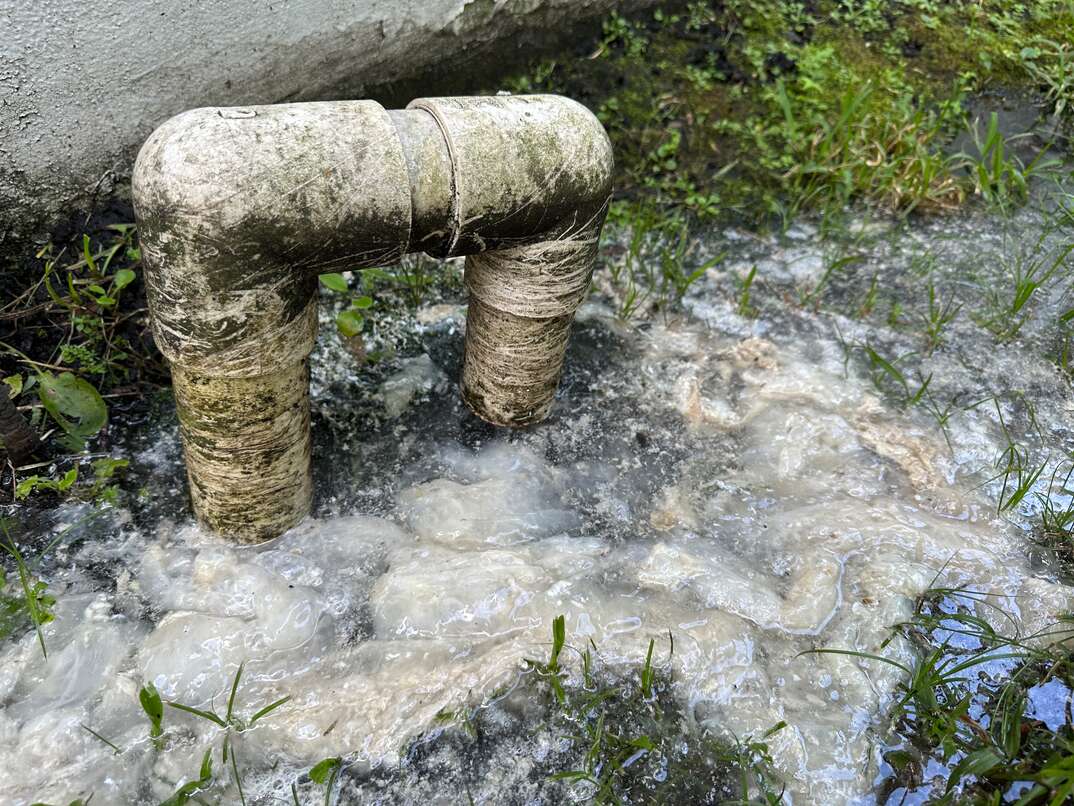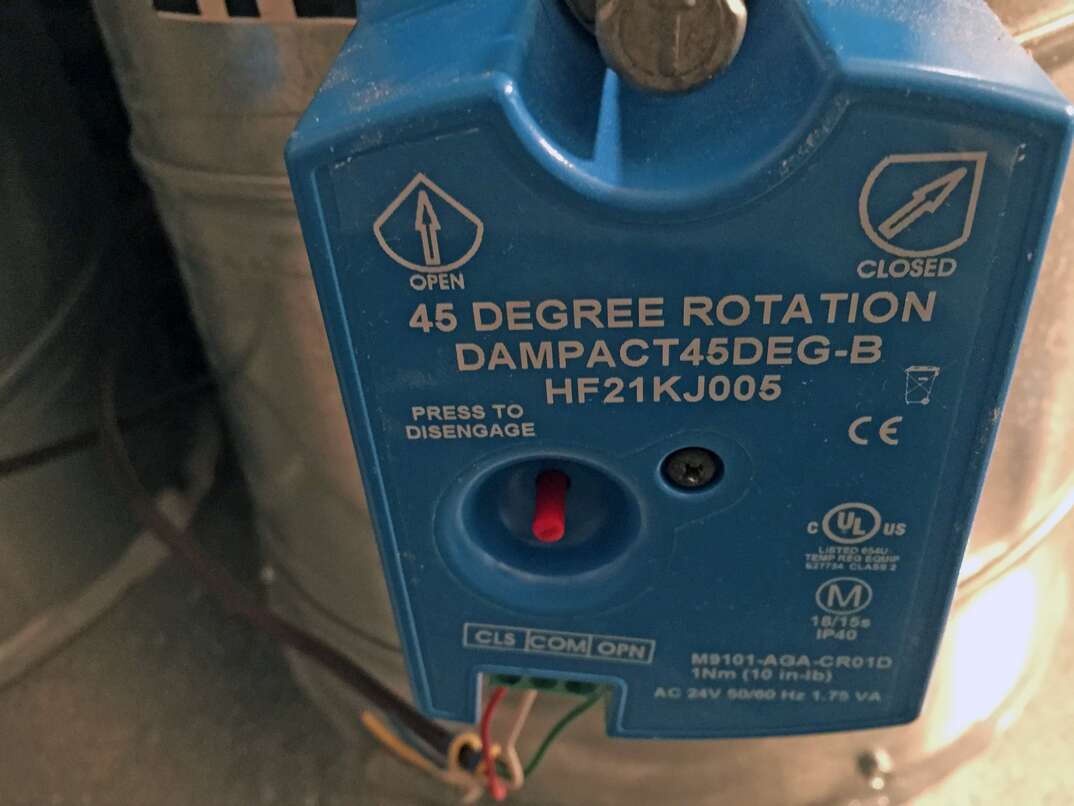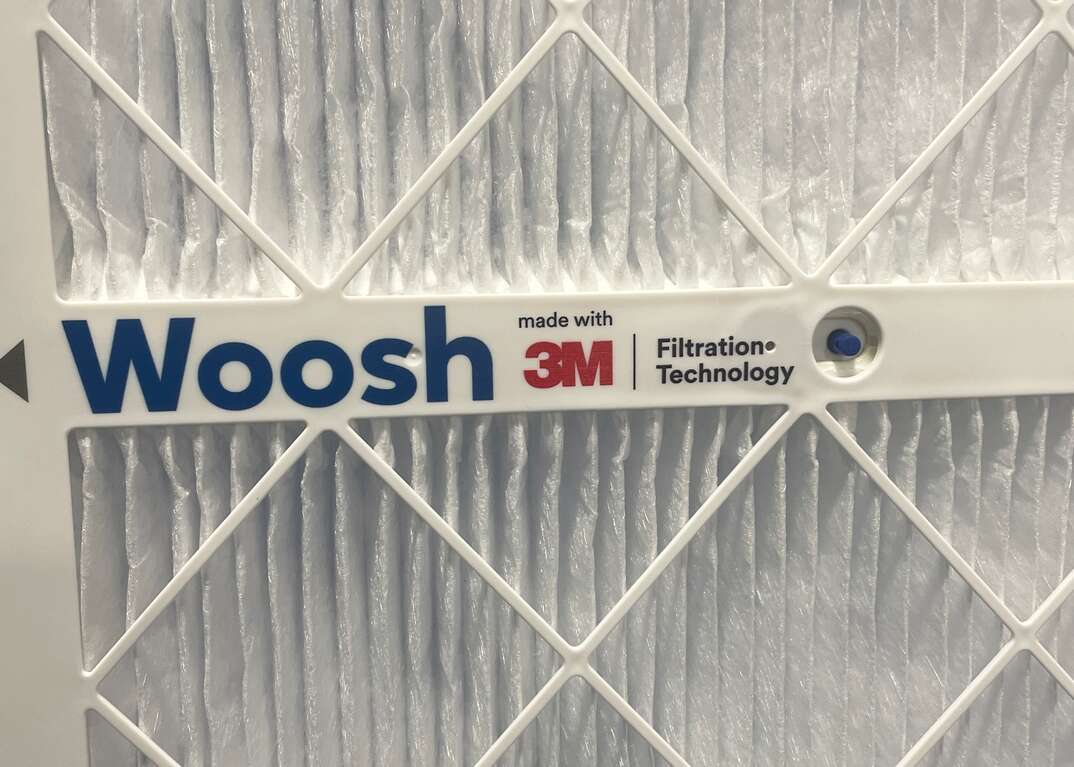Why Is My Window AC Unit Spitting Out Black Gunk?

Any time you notice a black substance accumulating anywhere in your home, it can be disconcerting, to say the least. Now, when that black gunk is coming out of a window AC unit — an appliance that’s used to distribute and circulate cool air throughout a room — it may even cause you to panic about the quality of your indoor air.
This May Also Interest You: New to BTUs? Here’s What to Know About BTUs When Shopping for an Air Conditioner
While it might look freaky, the black stuff coming out of your air conditioner is usually no reason to freak out. In most cases, a thorough cleaning will get your window AC unit back up and running smoothly and gunk-free.
3 Reasons Your Window Unit Is Spewing Black Particles
Dirt and Debris
If you notice dark, black chunks coming out of your air conditioner, there’s a good chance it could simply be dirt. If the air conditioner has sat unused for an extended period of time, it may be that dirt, dust and other debris has accumulated and settled inside the unit. If you suspect this might be the issue, turn off the air conditioner, unplug it from its power source, and open the panel that leads to the internal components of the air conditioner. Upon opening, you should be able to see whether your unit has accumulated dirt and debris in its interior. Using compressed air, an all-purpose cleaner and a microfiber cloth, gently clean the fan and evaporator and condenser coils.
Burnt Components
Another possible cause of black debris coming from your air conditioner is that you may have an internal component that has, essentially, burned and created soot and ash. If you notice any burning smells emanating from the unit, that’s likely the cause. If you think this might be the scenario you’re facing, turn off the AC, disconnect it from the power source and call an HVAC technician to come to repair the unit.
Mold
A third possible cause is that the air conditioner might have mold growing inside it. An AC unit that has sat turned off for any amount of time in warm, humid conditions may very well have developed mold and mildew. As the AC is turned on, wet, black particles may blow out of the unit. Also, be on the lookout for moldy patches on the vents, evaporator coils, or any condensation pans. It’s also likely that there might be a musty smell coming from the unit.
Mold growing anywhere in your home can affect the health and well-being of its residents, especially those who are immunocompromised and those prone to allergies. That’s why, if you suspect mold growth, you’ll want to work as quickly as possible to get rid of it.
Depending on the severity of your mold infestation, you have two options: Clean the unit yourself, or replace it. If you’re only noticing a small amount of mold — covering less than about a third of the unit — you can clean the mold yourself.
To clean your unit, start by removing the filter and disposing of it. For washable filters, remove any visible mold from the filter and soak it for 10 minutes in a 10:1 water and bleach solution. Then, after unplugging and disassembling the unit, use the same cleaning solution to clean mold from any and all affected surfaces in the unit. Let the solution sit on the mold for 10 minutes in order to kill all spores on the surface. Finally, rinse the treated surfaces carefully and let everything dry.
The other option is to replace the unit entirely. If your mold growth is significant, this might be the best option. After an initial bout of mold growth, the chances of regrowth are high. That’s why replacing a unit might be a simpler option in the long run.
More Related Articles:
- Keep Cool With Our Top 5 Picks for Window AC Units
- How to Clean a Window AC Unit: A Step-by-Step Guide
- Hot or Cold in Your Household? Split the Difference With a Mini Split Air Conditioner
- Cooling Fans Vs. Portable Air Conditioners: What’s the Difference?
- Is It Actually Cheaper to Run Fans Than Air Conditioning?
Mold Prevention
There’s no 100% fool-proof way to prevent mold growth and other gunk from occurring in your air conditioner. You can, however, take steps to significantly reduce the chances it’ll appear.
Start by cleaning or replacing your air filters once every two months, depending on which type your unit requires. For disposable filters, choose air filters with higher MERV (minimum efficiency reporting value) ratings and those specifically designed for mold control. If you live in an area with high humidity, you can use a dehumidifier to limit excess moisture levels in your home. Finally, don’t leave your AC turned off for long periods of time during warmer months. If you’re away, set the AC at a higher temperature to ensure that air is moving through the unit regularly.
Whether it’s dirt, soot or mold, black particles coming out of your air conditioner can be unsettling. In any scenario, staying on top of regular maintenance and cleaning is paramount. Catching any malfunction early is always preferred to waiting until the problem becomes more severe.


